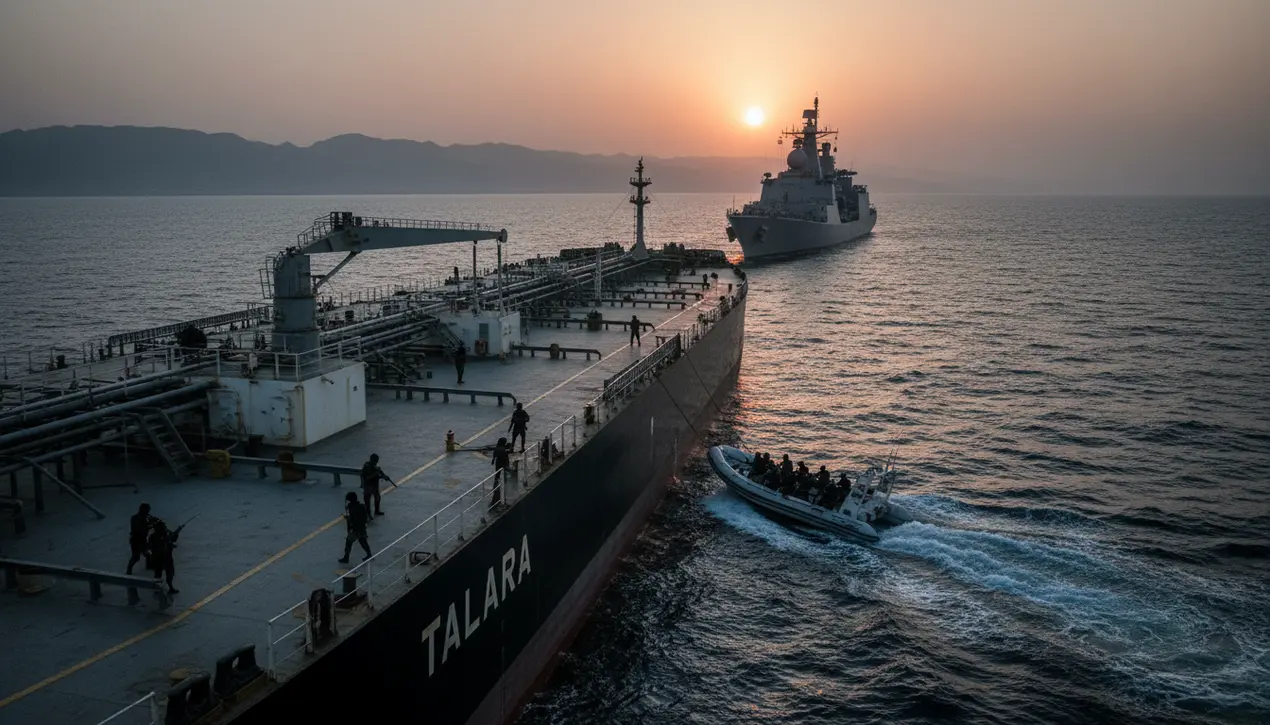
Politicsconflict & defenseMilitary Operations
Iran seizes Talara tanker in Strait of Hormuz.
OL
Oliver Scott
2 hours ago7 min read
The seizure of the Talara tanker by Iranian forces in the Strait of Hormuz is not an isolated maritime incident but a calculated move in a high-stakes geopolitical chess game, one where the waterway transforms from a mere shipping lane into the central nervous system of global energy security. This strategic chokepoint, a mere 21 nautical miles wide at its narrowest, is the conduit for about a fifth of the world's daily oil consumption, and its closure—or even the threat of it—sends immediate shockwaves through insurance markets, benchmark crude prices, and the boardrooms of every major energy trader from London to Singapore.The vessel's journey, originating in the United Arab Emirates and destined for Singapore, underscores the globalized nature of the threat; an action against a single ship is an action against the entire international economic order. Historical precedent is starkly clear: recall the 2019 seizure of the Stena Impero by Iran's Islamic Revolutionary Guard Corps (IRGC), an event that saw a dramatic escalation in regional tensions and a sharp, albeit temporary, spike in oil prices.The modus operandi appears consistent—a rapid boarding by fast-attack craft, a declaration of a violation, often related to supposed maritime infractions, and the swift diversion of the vessel to an Iranian port. This pattern is not random; it is a calibrated tool of statecraft.Analysts at risk consultancies like Control Risks would point to several plausible, interlinked motivations behind this latest provocation. It could be a retaliatory measure for recent actions by Western powers, perhaps a seizure of Iranian oil cargoes elsewhere, acting as a form of asymmetric bargaining chip.Alternatively, it may be a demonstration of capability and resolve directed at the new administration in Washington, a test of its red lines and its appetite for a naval confrontation in a region already simmering with proxy conflicts. The immediate consequences are twofold: first, a tangible increase in war risk premiums for all vessels transiting the area, a cost ultimately passed on to consumers worldwide; and second, the forced recalibration of naval deployment strategies for the US Fifth Fleet and its allies, who must now decide between escorting commercial traffic—a monumental task—or accepting a new normal of heightened vulnerability.Looking at the scenario planning matrix, the most likely outcome is a period of managed crisis—tense diplomatic exchanges, possible behind-the-scenes negotiations for the ship's release, and a temporary bolstering of naval patrols. However, the high-impact, low-probability tail risk remains a miscalculation: an accidental engagement between Iranian and US naval forces that spirals into a broader military conflict, potentially disrupting oil flows for months and triggering a global economic recession. The seizure of the Talara is therefore more than a headline; it is a stark data point in the ongoing assessment of regional stability, a reminder that in the Strait of Hormuz, economics and geopolitics collide with explosive potential.
#Iran
#Strait of Hormuz
#tanker seizure
#maritime security
#naval incident
#featured
Stay Informed. Act Smarter.
Get weekly highlights, major headlines, and expert insights — then put your knowledge to work in our live prediction markets.
Comments
Loading comments...
© 2025 Outpoll Service LTD. All rights reserved.